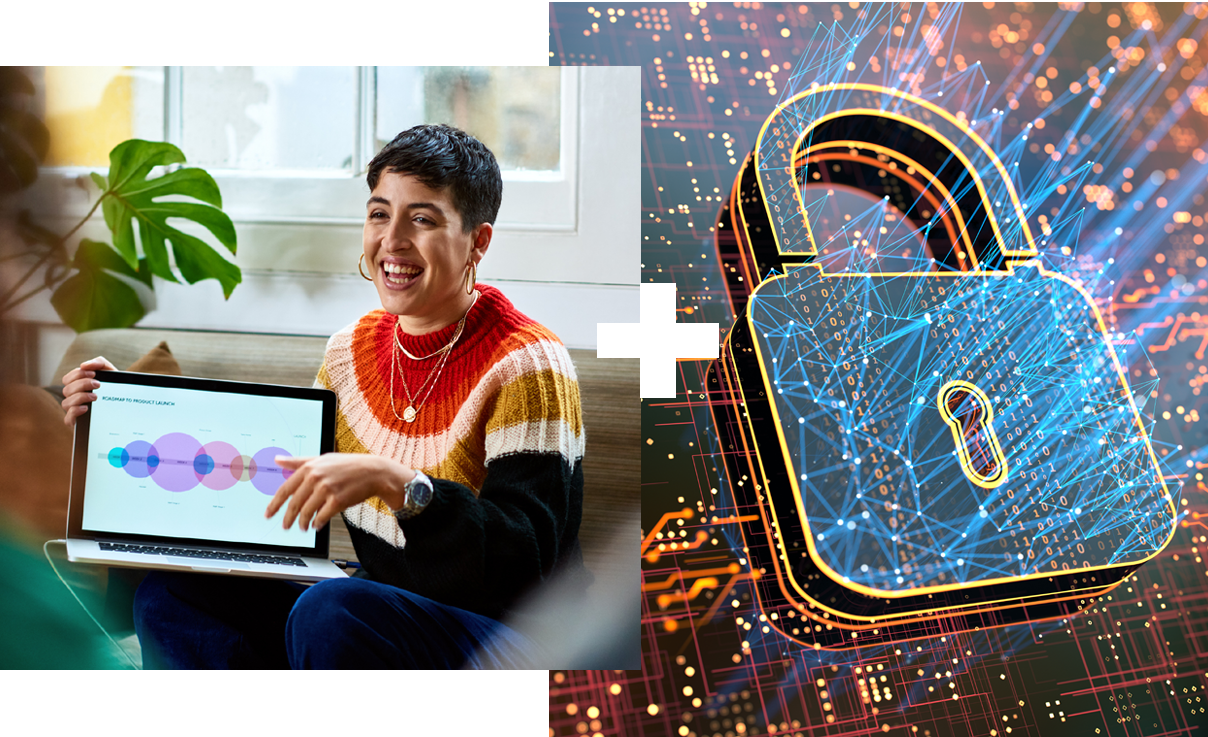Cyber safety
Keeping yourself safe online
It is easy to fall prey to scams and online threats, and it's important to do everything you can to keep yourself safe.
Our IT and Digital Infrastructure team provide detailed information on Staying Cyber Safe, which includes top tips and useful links to external resources. You'll also find instructions on how to keep your passwords secure, and general identity security.
If you have any further queries on IT Safety, the Servicedesk is your first point of contact. They are available 09:00-17:00 Monday-Friday using the following methods;
- email: servicedesk@uhi.ac.uk
- web: www.uhi.ac.uk/servicedesk
- Live chat: www.uhi.ac.uk/en/lis/
You can also keep up to date with the latest Cyber Security News.

Gender based violence
If you have experienced Gender based violence, our GBV Safety webpage has guidance on online tracking and digital stalking, as well as advice about getting non-consensual images removed if they've been posted online.
Multi-Factor Authentication
There is a dedicated webpage which explains how UHI use the Multi-Factor Authentication process and some common problems and solutions.
Online dating
Thinking about online dating? There are risks to meeting people online, but Get Safe Online have a section on their website with guidance to ensure you can enjoy online dating with safety and confidence.
Phishing
Phishing is an increasing problem. You can watch a short video on Phishing Awareness and take a quiz to test your ability to identify phishing websites from real ones.
Police Scotland
Police Scotland have a handy webpage which provides more information about all aspects of internet safety, and you can also download their Student Online Safety Guide.
QR codes
QR codes are increasingly used as a way to reach advertiser's websites and by businesses likes cafes and restaurants. These tips explain how to use them safely.
Social media
Most of us access social media in some form or another, but not everyone using it is who they say they are. Get Safe Online have some really useful advice on Communication and Social Networking from WhatsApp to Facebook, Chatrooms, and much more. Try to also remember the basic tips below to stay safe;
- Make use of privacy settings to keep track of what you are sharing, with who
- Think about what you are posting, particularly whether there is anything in your photo/s which could put you in danger or that you wouldn't want to share publicly. Even if it feels private, social media is still a public space
- Checking in or tagging friends shares real-time location details with anyone who can see your post
- If you are attacked online, report it! Depending on what has happened you may be able to seek support from UHI or your local college, or even the Police
The Cyber Helpline
A charity offering free, expert help for victims of cybercrime, digital fraud, or online harm. This includes hacking, scams, bullying and harassment, and more. Visit their website.
Useful links
Useful links
- Get Safe Online - have a huge amount of advice and guidance on protecting yourself online. Includes smart TVs, online gaming, downloading and file sharing, and much more
- National Cyber Security Centre - can help take your email security to another level. They also have guidance on installing the latest software and app updates, to protect your devices and accounts
- UK Safer Internet Centre - leads a global partnership helping to make the internet a safe place for everyone. Covers a wide range of online issues, and is the coordinator of the annual Safer Internet Day event